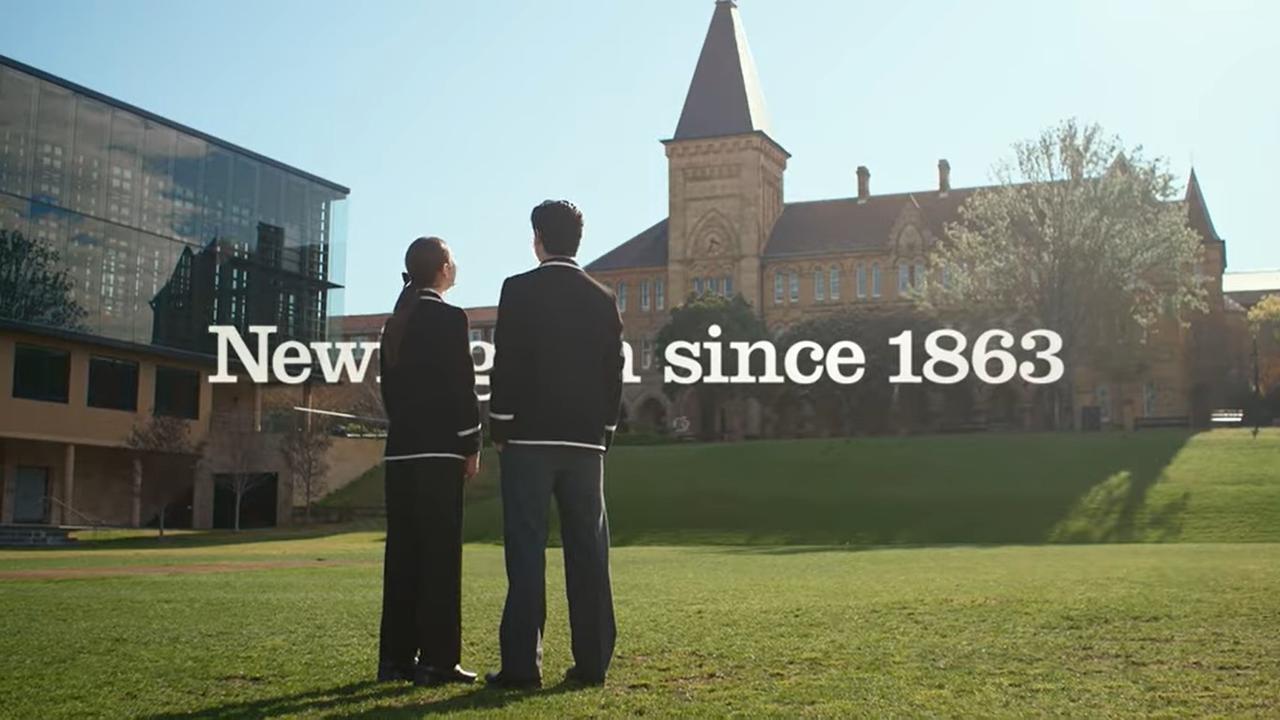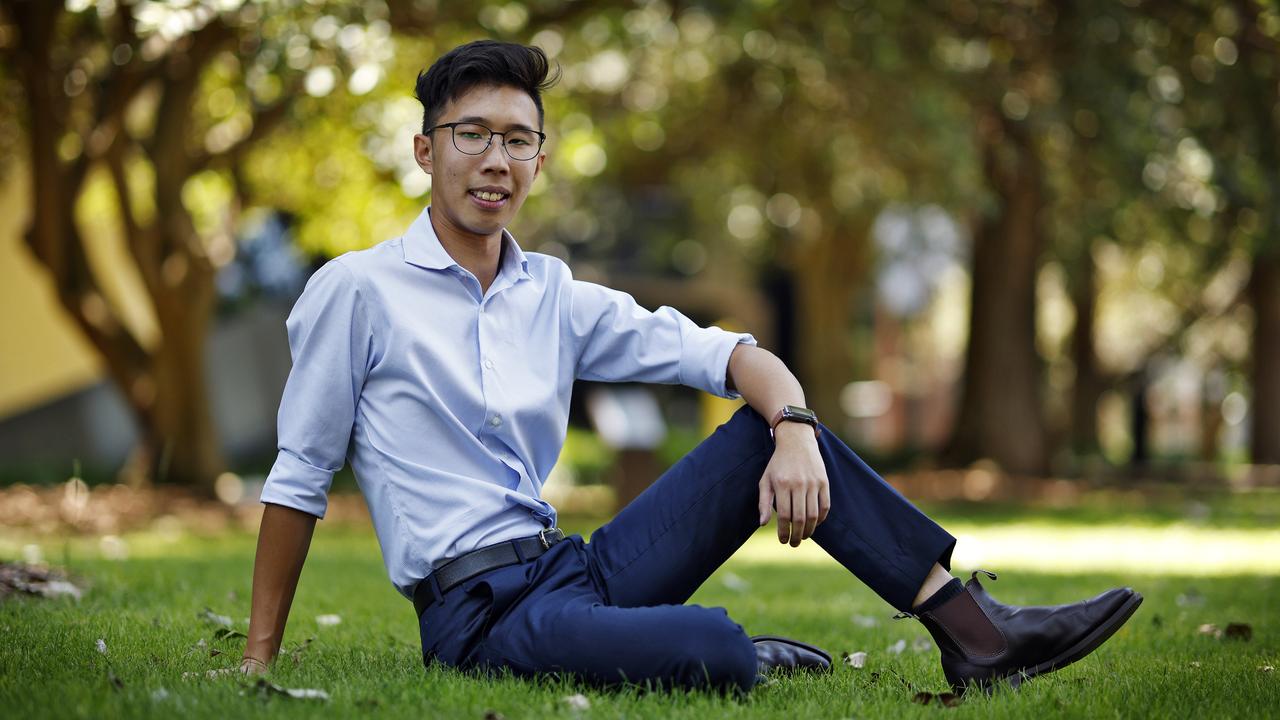‘Hard work paid off’: NSW’s best non-selective schools revealed
One Western Sydney public school has the biggest population in the state and has no academically selective intake — but it beat one of NSW’s richest private schools. Read it’s story.
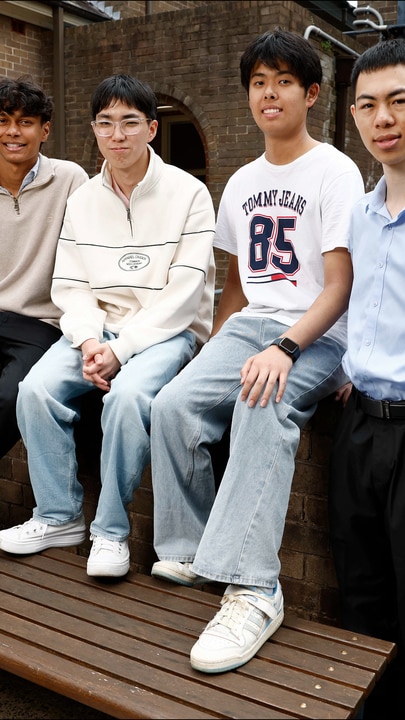
Education
Don't miss out on the headlines from Education. Followed categories will be added to My News.
With more than 2200 students and 300 in Year 12 alone you’d think it would be easy to get lost in the crowd at The Ponds High School — and forget about being able to work as a team.
But the graduating class of 2024 have proven those assumptions wrong, defying expectations for a comprehensive, non-selective Western Sydney public school by leapfrogging medium and high-fee private schools into 172nd position overall on the HSC leaderboard.
The improvement of more than 150 places has seen the “distinguished achievers” at The Ponds eclipse students at the $47,500 per-year inner west boys’ school Trinity Grammar and $17,000-a-year Georges River Grammar.
Principal Jenny Weal has spent the year battling NSW’s teacher shortage to get a teacher in front of every HSC class — stepping in herself to take advanced and extension English when there were no other options.
However, she said it’s the teamwork and leadership the students themselves have shown that have played a significant role in the fantastic results.
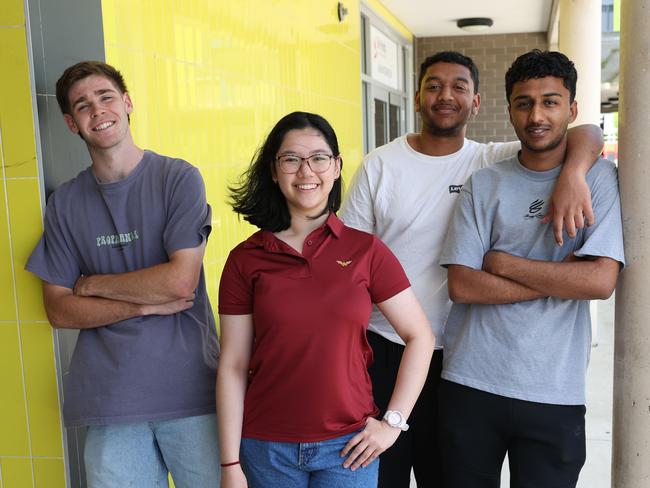
“We work very hard in Western Sydney — it’s been a difficult year getting teachers for some of our subjects, but I know that everyone across all our schools is working to do the best for our students,” Mrs Weal said.
“Comprehensive schools like ours take some of the most disadvantaged kids in the state – when that’s not necessarily the case at all schools.
“We have kids who took the VET pathway - kids who did TAFE, who did retail services - so it’s not just about the kids at the top, it’s about everyone wanting to be the best they can be because that’s what comprehensive schools are all about.”
Last year The Ponds recorded more Band 5s - marks 80 to 89 - than ever before, but exit interviews with graduates revealed those with early entry to university had developed a “don’t care” attitude before they took the final exams.
In contrast, “these guys (the Class of 2024) just went, ‘yes I’m getting my early entry, but I’m still trying to top that and see if I can go even further’,” Mrs Weal said.
“They just have this overall group mentality of ‘we’re going to do it’.”
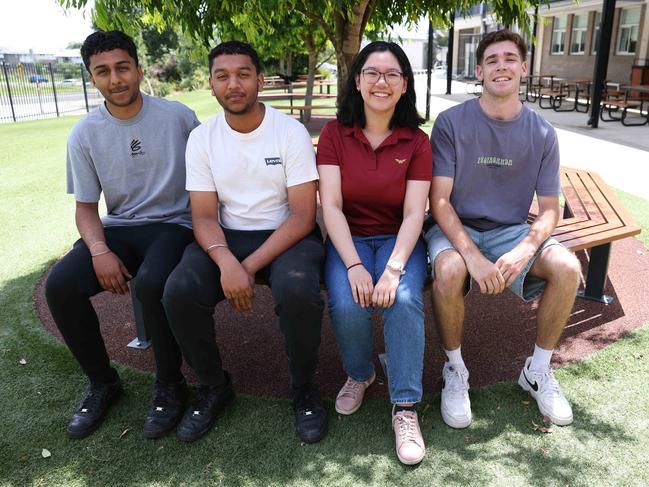
Distinguished achievers Kathleen Dela Cruz, Lachlan Boyd, and twin brothers Harjot Gill and Gurjot Gill (the elder by one minute, he stresses) all achieved ATARs over between 93 and 98, and were thrilled to see their “hard work paid off”.
“Hearing a few of them speak in the years below us, there’s actually a few of them that want to beat us as a grade, and get even more Band 6s,” Lachlan said.
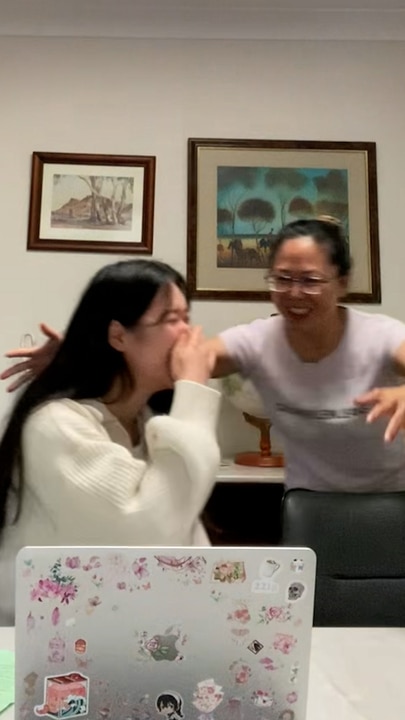
Elsewhere Carlingford High School’s rise 13 places on the leaderboard ended Killara High School’s three-year run as the state’s highest-ranked coeducational, non-selective public school, with the two schools ranked 72nd and 91st respectively.
Cherrybrook Technology High School placed 95th this year after almost one in five of its HSC entries returned a Band 6 while Lindfield Learning Village, Castle Hill High School and Toormina High School in Coffs Harbour all significantly improved their standing.
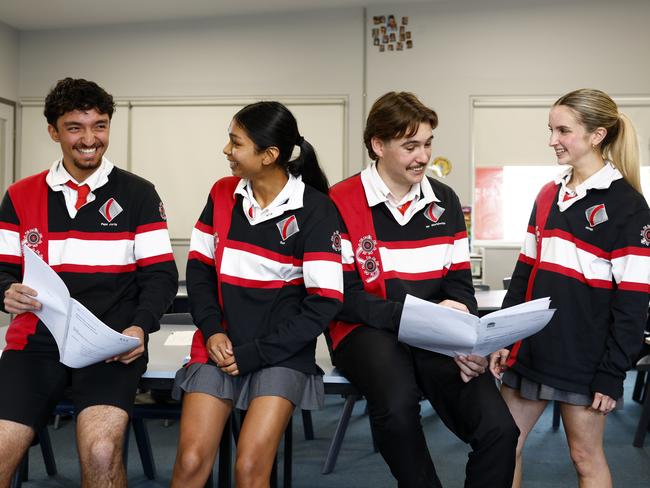
Carlingford principal David Krust said there’s a “really strong culture of high expectations and a commitment to excellence” at his school, shared by the students, teachers and - importantly - parents.
“We’re also very conscious of those students that don’t necessarily achieve a band six, but have done wonderfully well and have achieved their potential,” he said.
“I think that’s the great thing about a comprehensive, coeducational public education - we take all-comers and we do the very best to achieve the best outcomes with them.”
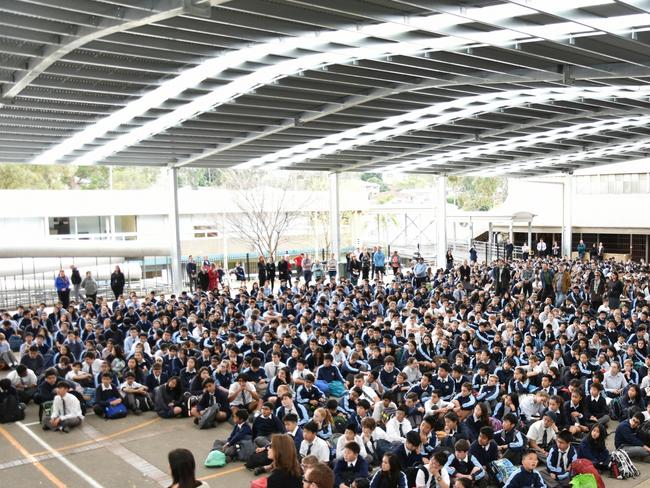
Despite being punched a few places down the list, Killara High School principal Robin Chand is extremely proud of his students after the school recorded two more ‘distinguished achievers’ than last year – students who achieve a Band 6 in at least one subject – and three more ‘all-rounders’ – those who achieve Band 6s in all their courses.
Many of those students are neighbours to families who pay tens of thousands of dollars to attend the upper north shore’s pricey private schools.
“We don’t do educational fads,” Mr Chand said.
“We focus on direct explicit teaching. Learning is at the core of our focus, and everything else progresses as a result of that.”


